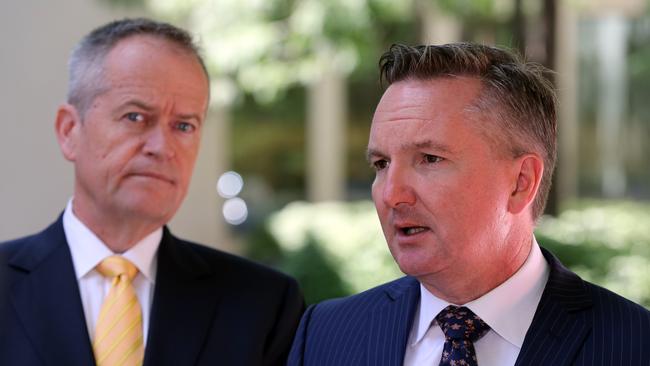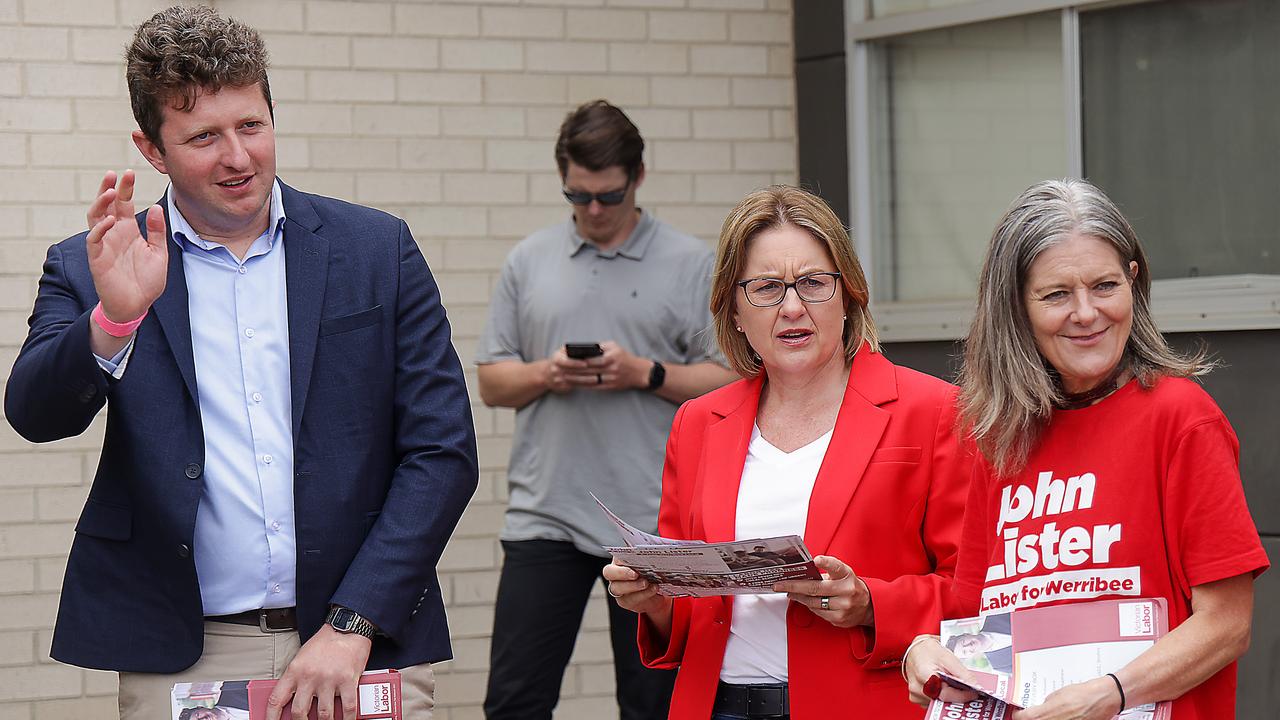Labor’s negative gearing changes will start from January 1 next year if it wins May election
The property industry warns of the impact on housing market and wider economy.

The property industry has reaffirmed its opposition to proposed changes to negative gearing after Labor said any changes would take effect from January 1 if it won the election.
However the Property Council of Australia was “relieved” Labor would not try to push the changes through on July 1, after the expected May election.
Labor plans to scrap negative gearing concessions for new investors and has dismissed calls to delay or phase in the policy, which is a key point of difference between the ALP and Coalition.
The Property Council said it remained “strongly opposed” to the policy, saying it was “deeply concerned” with its potential impacts on the housing market as well as the broader economy.
“In particular, we are concerned with the impact of these tax changes on new housing construction, with a survey of investors commissioned for the Property Council indicating that this policy will not create the stimulus for new housing construction that the ALP has assumed,” the Property Council said in a statement.
Still, the Property Council said it was relieved proposed changes would not be rushed through earlier.
“To do so would have required retrospective legislation, rushed drafting and no opportunity to take expert advice from Treasury and stakeholders,” the council said.
Labor Treasury spokesman Chris Bowen said the start date would leave enough time for scrutiny of the legislation and more consultation.
“This allows it to come in at a quieter time in the property cycle — obviously Christmas and New Year being a quieter time — a good smooth time for implementation,” Mr Bowen said.
“This strikes the right balance.”
The Real Estate Institute of Australia reiterated its concern over the impact of the proposed changes to negative gearing and capital gains tax.
“The Real Estate Institute of Australia has always been concerned with the impact the policy would have on housing markets, buyers, renters and economic activity,” the association’s president Adrian Kelly said in a statement.
“This concern is magnified in the current market.
“There is almost truckloads of analysis and reports showing the adverse impacts of the policy on mum and dad investors, home owners, renters, the construction industry, state governments and the economy.”
The comments follow a report by SQM Research, which predicted house prices will fall further between 2020 and 2022 if the changes are implemented.
Rents were expected to increase by between 8 per cent and 15 per cent on a weighted average for the capital cities for 2020 to 2022, SQM said.
“For first home buyers, who according to Labor, should see improved housing affordability by a ‘levelling of the playing field’, will now face a faltering economy, lower employment prospects, the possibility of higher interest rates under a Labor government and higher rents whilst they save for a deposit,” Mr Kelly said.
The change would stop new investors from deducting rental losses from their tax bill, raising an estimated $2.9 billion over four years.
Labor says the tax break is too generous and makes it harder for the young, and first-home buyers, to get into the housing market.
Labor’s timetable released
Labor’s negative gearing changes will start from January 1 next year if it wins the May federal election.
Bill Shorten has been under pressure for months to reveal the start date of his controversial housing reforms, as the property market begins to cool after a years-long boom in Sydney and Melbourne.
Opposition treasury spokesman Chris Bowen has also revealed more about his plan to get more houses built to ease demand, with a 15 per cent cut to the managed investment trust withholding rate.
“If you already use negative gearing, nothing changes. It’s not retrospective. And you can still use it for new houses,” Mr Bowen said in a statement today.
“Federal Labor’s reforms to negative gearing enjoy the support of many independent economists and think tanks like the Grattan Institute and Saul Eslake as well as international economic agencies like the International Monetary Fund.
“The fact is, the benefits of both negative gearing and the capital gains tax discount (CGTD) are skewed towards the wealthy, with the Grattan Institute estimating almost 70 per cent of the benefit of the CGTD accrues to the top 10 per cent of income earners.”
Labor’s negative gearing reforms, first announced in the 2016 federal election, have been consistently attacked by Scott Morrison and Josh Frydenberg, who say changes will bring property prices down at a time of economic uncertainty.
Mr Bowen also said his “Build to Rent” scheme will provide more long-term rental housing, with the Coalition claiming renters would be particularly hit by negative gearing changes.
“We will cut the managed investment trust withholding rate in half, on tax distributions attributable to investments in build-to-rent housing. The rate will be lowered from 30 per cent to 15 per cent — encouraging new housing supply,” he said.
“Build to Rent provides more stable long term tenancies and more housing in desired locations close to public transport and close to employment opportunities. This is good for families who want to spend more time with each other, and less time travelling to and from work.”
— with Richard Ferguson




